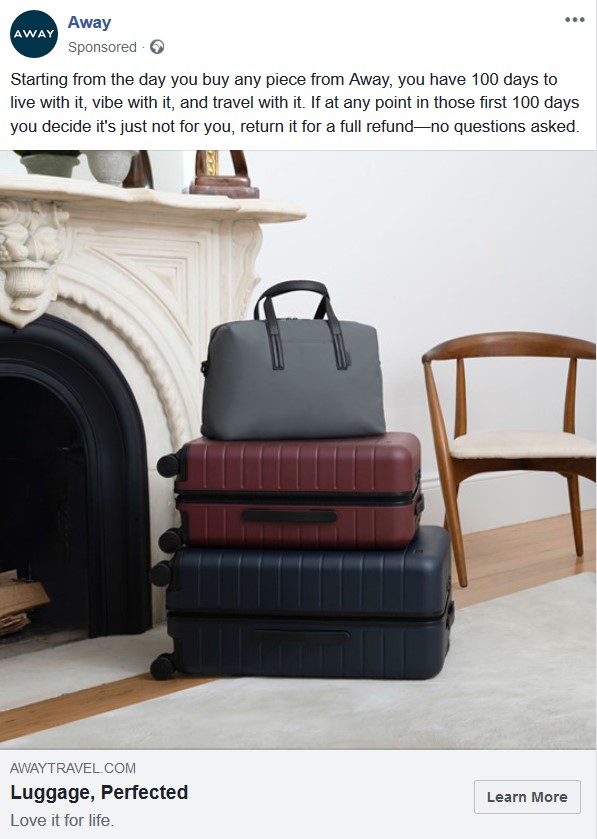Treat Consumers’ Data With Respect & Deliver Value in Exchange
I sometimes think my phone is listening to me. I mentioned to my wife we need some new luggage for an upcoming trip and lo and behold, what pops up in my Facebook stream? A string of adverts for all wonderful types of luggage – most of which are sadly out my price range…

It is the same with websites that you visit that then use cookies to stalk you round the internet imploring you to buy.
We often smile and shrug when this happens, but it masks an uncomfortable truth.
We’ve sold our privacy and data in return for ‘free’ access to social media, search engines and analytics. It’s worth considering whether we’ve given this data up too cheaply?
For example, many charities fundraising online rely on third party platforms like Facebook or some of the crowdfunding sites. Facebook shares the supporters’ data– but not with the charity itself. Without that Facebook donor’s name and address it can be a struggle to thank and steward appropriately.
Often we can only contact a fraction of those giving, leaving a gap in our gratitude. I’m sure we leave a fair number of donors thinking ‘the ungrateful so and so’s, I never got thanked for that gift’.
Look carefully at Facebook. When they waived their fees for giving, it wasn’t done for purely philanthropic reasons. No, for that forgiven fee Facebook added another layer of data they can use to profile the donors and then market to market them with additional targeted ads.
In a world with an increasing number of gatekeepers, we must find ways to gather the information we need to deliver great experiences directly to our supporters.
This relevant first-party data allows us to deliver a much richer and personalised experience. Gathering information on a supporter’s connection to your cause,–why they chose you and how they found the giving experience –all help you build better journeys.
After all, what is your supporter’s fav subject? Probably the same as mine and yours – ourselves!
Surprisingly the easiest way to capture this data is devastatingly simple – ask them. And do it often and consistently to build up a picture of their satisfaction, commitment and identity. If you can give a good reason why the information is useful, then people are usually willing to share their story and details.
The hard bit is the internal process. Recording the information that is given in an accurate way that you can then play back to supporters. This shouldn’t put us off though. Those charities that are able to record and then use such data will be at a huge advantage to others.
Of course, we need to use any data we gather ethically, appropriately and systematically to build a better experience for our supporters.
We’ll look at what this might look like in the final post of the current series.
Craig



Excellent post Craig!
Giving up access to your own donors causes a huge drop in the Lifetime Value of that donor. The scary part is those donors without contact information do not even fall into any sort of Lapsed grouping, which can be contacted again in the future!
Is such a one time donation worth it? Can the fundraising team’s time and efforts be better invested in other activities?
Thanks Jay. I think those two last questions you raise are so important. Yet I don’t think many teams are having an open and honest discussion around this and debating the merit and opportunity cost. I also worry that supporters assume that the nonprofit will know they’ve given and be confused/disappointed when they never hear anything again.
Always great to see you here on The Agitator, Craig.
More than a few years back I conducted a mystery shopping experiment whereby I made online gifts of $20 every week to two nonprofit organizations and tracked followup. As anyone who has done this type of research knows, with one or two standouts, it’s typically a dismal experience.
One organization though, surprised me with their followup. Fifteen minutes after my $20 donation their executive director called to say thank you…and to ask what prompted my gift. Imagine how many organization’s fundraising programs could be totally transformed by embracing that ONE habit? We’re so consumed with bright shiny objects and putting out fires that we’re rarely focusing on the work that REALLY matters.
Most of what works is, indeed, as you put it, “devastatingly simple.” Yet our sector loves nothing more than overcomplicating everything. Thanks for the reminder, Craig!
Thanks Pamela! I love mystery shopping even if the results are almost always shockingly poor. It’s fab to hear an exception to the rule and one that I’m sure has helped them raise lots of money over the years.Thanks for sharing!